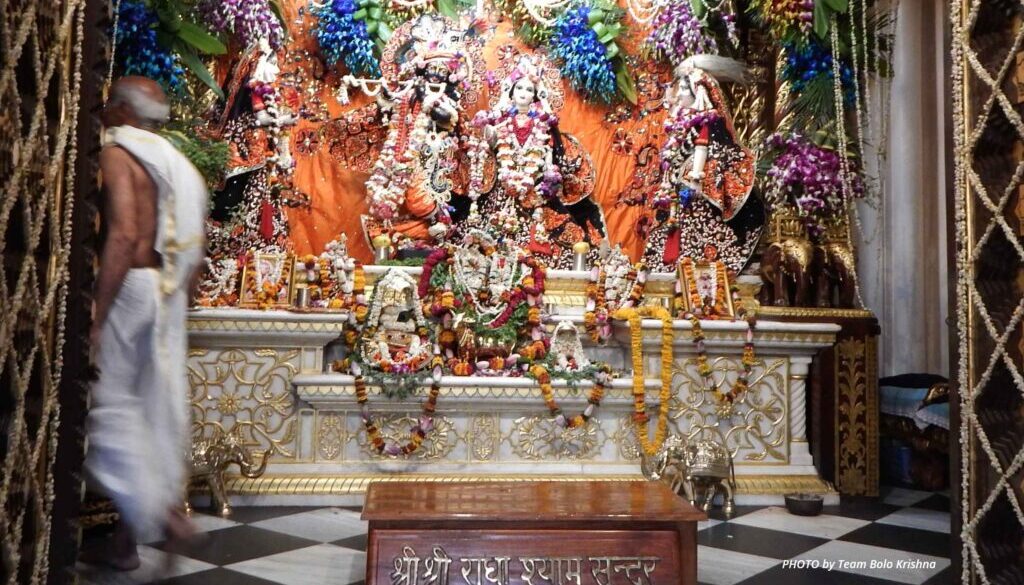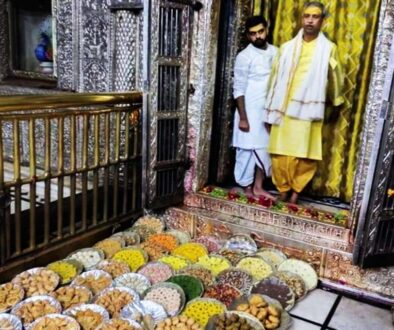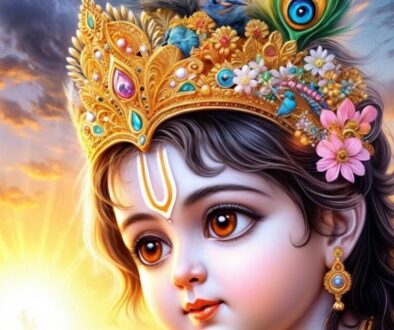How to Observe Fasting on Krishna Janmashtami: A Guide for the Modern Devotee
Krishna Janmashtami, the celebration of Lord Krishna’s birth, is one of the most significant festivals in the Hindu calendar. Fasting on this auspicious day is more than just a ritual—it’s a way to purify the mind and body, connect with the divine, and honor Lord Krishna’s life and teachings. In this comprehensive Krishna Janmashtami fasting guide, we’ll explore how to observe the fast, what foods to eat and avoid, and the spiritual activities to engage in during the fast.
What is Krishna Janmashtami?
Krishna Janmashtami marks the birth of Lord Krishna, the eighth incarnation of Lord Vishnu, who is revered for his wisdom, playfulness, and divine teachings in the Bhagavad Gita. This festival is celebrated with great enthusiasm across India and the world, especially in places associated with Krishna’s life, such as Mathura and Vrindavan. Fasting on Janmashtami is a common practice among devotees, symbolizing devotion, self-discipline, and spiritual cleansing.
The Importance of Fasting on Krishna Janmashtami
Why Do We Fast on Krishna Janmashtami?
Fasting on Krishna Janmashtami is a way to show devotion and surrender to Lord Krishna. It is believed that fasting helps in purifying the soul, bringing it closer to the divine. Abstaining from food symbolizes self-control, an essential aspect of spiritual growth. The fast is also a means to detach from the material world and focus entirely on the spiritual connection with Krishna.
Spiritual Significance of Fasting
Fasting is not just about refraining from food; it is about purifying one’s thoughts and actions. By fasting, devotees aim to cleanse their minds of negative thoughts and fill their hearts with love and devotion for Krishna. The fast also represents the overcoming of worldly desires and distractions, allowing devotees to focus solely on spiritual activities.
Common Reasons Why Youngsters Avoid Fasting
While fasting is an integral part of Janmashtami, many youngsters today avoid it for various reasons. The fast is perceived as challenging, especially with the busy and demanding lifestyles that most young people lead. The lack of understanding of its spiritual significance, along with concerns about managing daily activities without regular food, often deters them from observing the fast. However, with the right approach, fasting can be a fulfilling and spiritually enriching experience.
How to Observe Fasting on Krishna Janmashtami
Types of Fasts Observed
There are different types of fasts that devotees can observe on Krishna Janmashtami:
-
Nirjala Fast: This is a strict fast where devotees abstain from food and water throughout the day. It is considered the most rigorous form of fasting.
-
Phalahar Fast: In this type of fast, devotees refrain from eating grains and pulses but can consume fruits, dairy products, and specific fasting-friendly foods.
-
Ekadashi Fast: Similar to the Ekadashi fast, this involves avoiding grains and pulses, and consuming only fruits, milk, and other non-grain items.
What to Eat During Krishna Janmashtami Fasting
The key to a successful fast is to know what foods are permissible and how to maintain energy levels throughout the day.
Fasting-Friendly Foods:
-
Fruits: Bananas, apples, oranges, and other fruits are excellent choices for maintaining energy levels.
-
Dairy Products: Milk, yogurt, paneer, and other dairy products are allowed and provide essential nutrients.
-
Sabudana (Tapioca Pearls): Sabudana khichdi is a popular fasting dish, rich in carbohydrates and easy to digest.
-
Kuttu (Buckwheat Flour): Kuttu ki puri or pakoras are common dishes made during Janmashtami fasting.
-
Singhare ka Atta (Water Chestnut Flour): This flour is used to make puris and other fasting-friendly dishes.
-
Makhana (Fox Nuts): Roasted or cooked, makhana is a nutritious snack that is allowed during fasting.
Foods to Avoid:
-
Grains: Rice, wheat, and any other grain-based products are strictly avoided.
-
Pulses and Lentils: These are also excluded from the fasting diet.
-
Regular Salt: Instead of regular salt, rock salt (sendha namak) is used in fasting recipes.
-
Processed Foods: Packaged and processed foods, which may contain ingredients not suitable for fasting, should be avoided.
What to Do During Fasting
Fasting on Krishna Janmashtami is not just about abstaining from certain foods but also about engaging in spiritual practices.
Engage in Devotional Activities:
-
Chanting: Recite mantras dedicated to Lord Krishna, such as “Om Namo Bhagavate Vasudevaya” or “Hare Krishna, Hare Rama.”
-
Reading Scriptures: Spend time reading the Bhagavad Gita, the Srimad Bhagavatam, or other texts related to Lord Krishna’s life and teachings.
-
Visiting Temples: If possible, visit a Krishna temple and participate in the Janmashtami celebrations, which often include bhajans, kirtans, and special pujas.
-
Meditation: Practice meditation to quiet the mind and focus on spiritual thoughts.
-
Engage in Seva (Service): Participate in community service or charity, which is considered a noble way to observe the fast.
Breaking the Fast: Parana Ritual
The fast is traditionally broken at midnight, the time when Lord Krishna is believed to have been born. This is known as Parana. Devotees offer prasad (sanctified food) to Lord Krishna before breaking their fast. The prasad usually consists of fasting-friendly foods like fruits, sweets made with dairy products, and other permissible items. It is a moment of joy and celebration as devotees share the prasad with family and friends.
How to Break the Fast
-
Offer Prasad: Prepare prasad with ingredients allowed during fasting, such as fruits, milk, and sweets like makhana kheer or coconut ladoos.
-
Recite Prayers: Before breaking the fast, recite prayers and seek blessings from Lord Krishna.
-
Consume Light Foods: Start with light foods like fruits or a glass of milk before moving on to more substantial fasting dishes.
Tips for a Fulfilling Krishna Janmashtami Fast
-
Stay Hydrated: Even if you are observing a Nirjala fast, keep your body hydrated the day before the fast. If water is allowed, sip water throughout the day to stay hydrated.
-
Eat Light: If you are consuming food during the fast, opt for light, easily digestible meals that provide energy without causing discomfort.
-
Avoid Overeating: It’s tempting to eat more during the allowed periods, but overeating can negate the benefits of fasting.
-
Prepare Mentally: Fasting is as much a mental challenge as it is a physical one. Prepare yourself mentally by focusing on the spiritual benefits of the fast.
Conclusion
Fasting on Krishna Janmashtami is a profound way to connect with the divine and deepen your spiritual practice. By following this Krishna Janmashtami fasting guide, you can observe the fast in a meaningful and fulfilling way. Whether you choose a strict Nirjala fast or a Phalahar fast, the key is to approach the day with devotion, discipline, and a focus on spiritual growth. May Lord Krishna’s blessings be with you as you embark on this sacred journey of fasting and devotion.




